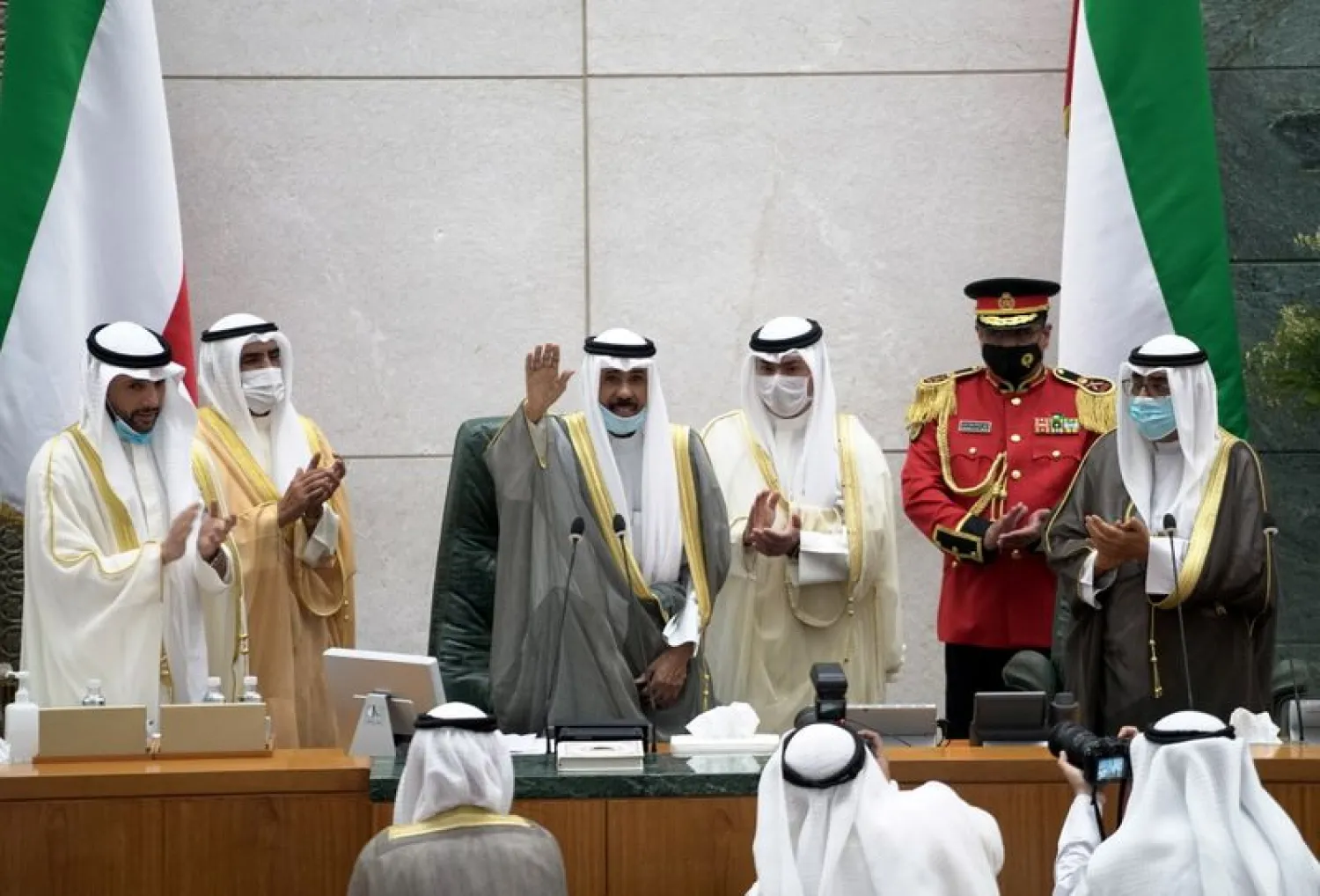Kuwait’s Emir Sheikh Nawaf al-Ahmad al-Sabah called on Tuesday for national unity to meet challenges facing the Gulf state, in a speech to lawmakers ahead of elections on Dec. 5.
The parliamentary elections come at a time when the wealthy OPEC member is facing a liquidity crisis caused by low oil prices and the coronavirus pandemic.
“National unity has proven to be our strongest weapon in facing challenges, dangers and crises,” said the emir, who assumed power last month on the death of the previous ruler.
Frequent clashes between the cabinet and parliament have led to successive government reshuffles and dissolutions of parliament, hindering investment and reform efforts. The outspoken assembly, the Gulf’s oldest legislature, can block bills and question ministers.
Prime Minister Sheikh Sabah al-Khalid al-Sabah, also addressing the opening of a supplementary legislative session, called for greater efforts to “diversify revenue sources and rationalize spending and consumption ... without detriment to citizens”.
He said the government was seeking more sustainable tools to finance the budget, in which public sector salaries and subsidies accounted for 71% of spending for the 2020-2021 fiscal year.
The nearly $140 billion economy is facing a yawning deficit of $46 billion this year. A priority will be overcoming legislative gridlock on a bill that would allow Kuwait to tap international debt markets.
Lawmakers opposed to the debt law have called for clarity on government plans to reduce reliance on oil exports, which accounted for 89% of revenues in the last fiscal year.
The emir is expected to maintain oil and investment policy and a balanced foreign policy that strove for Arab unity.









